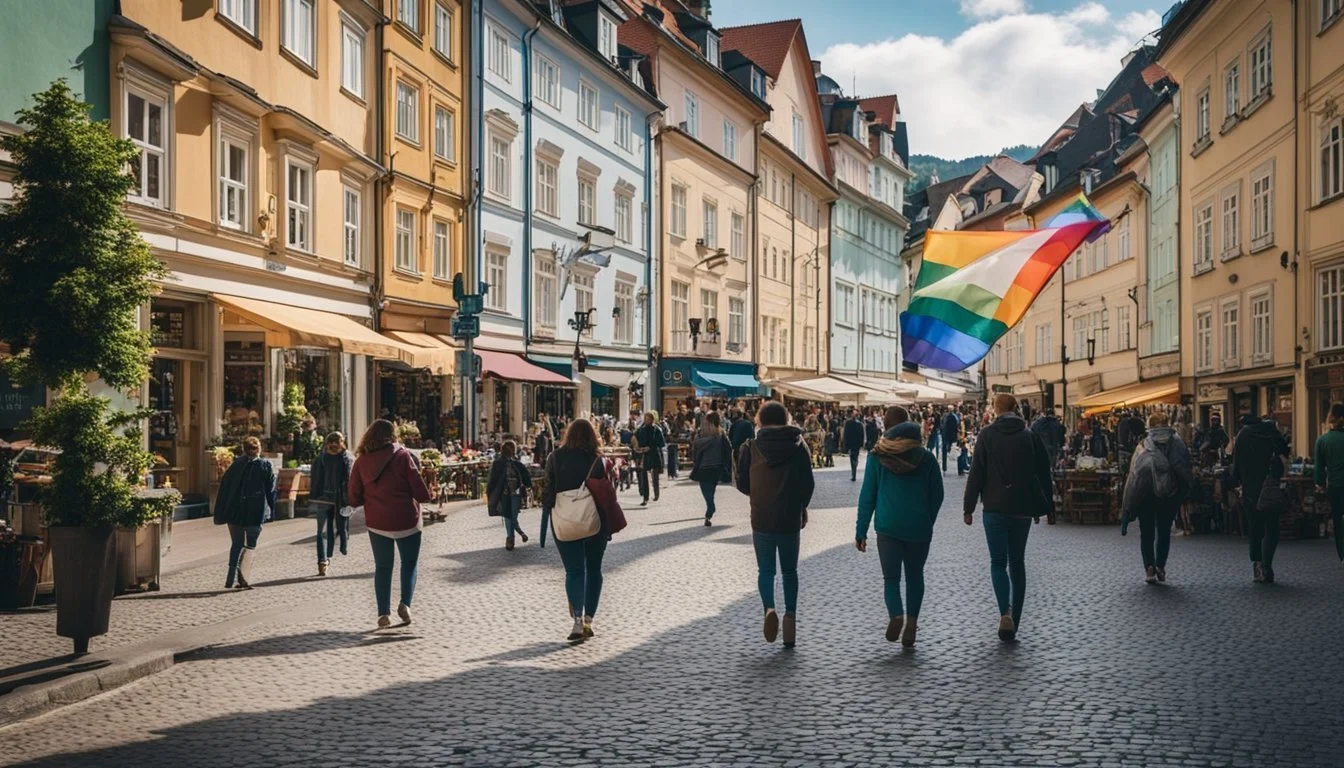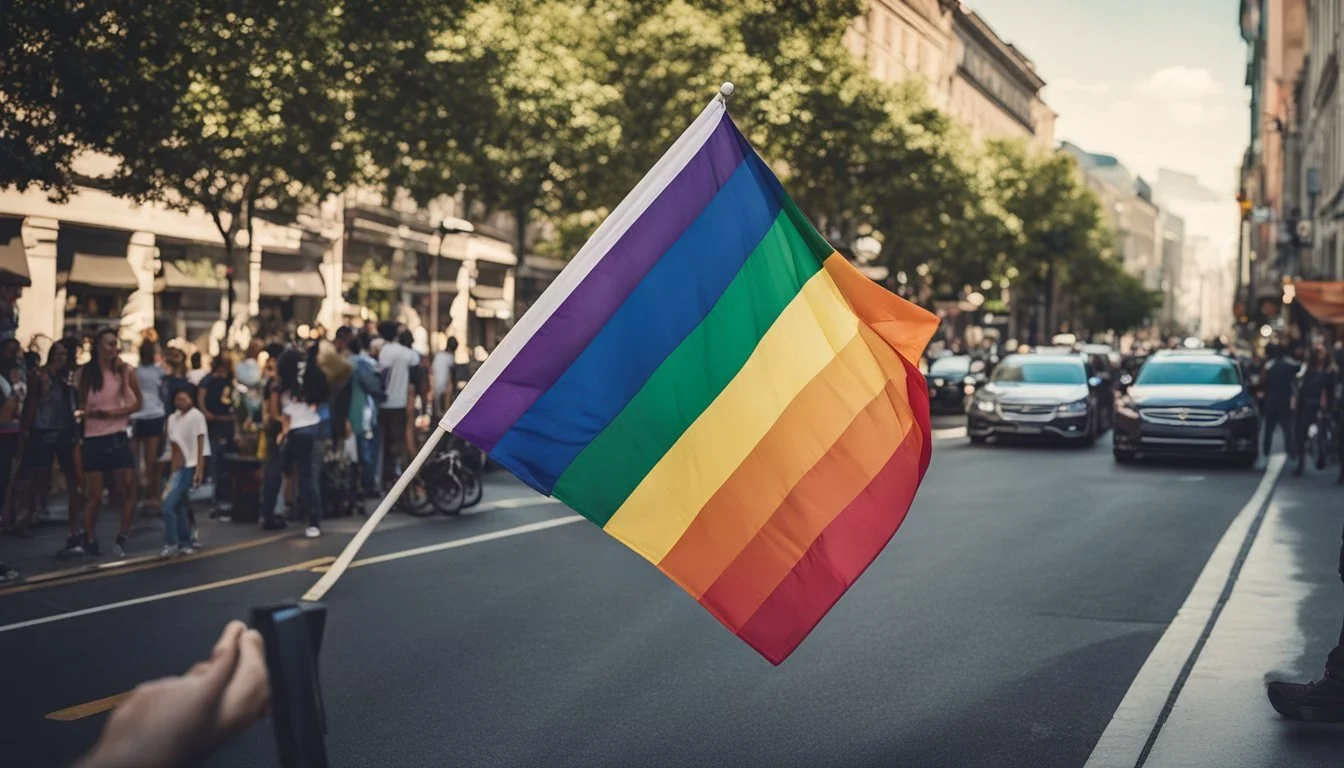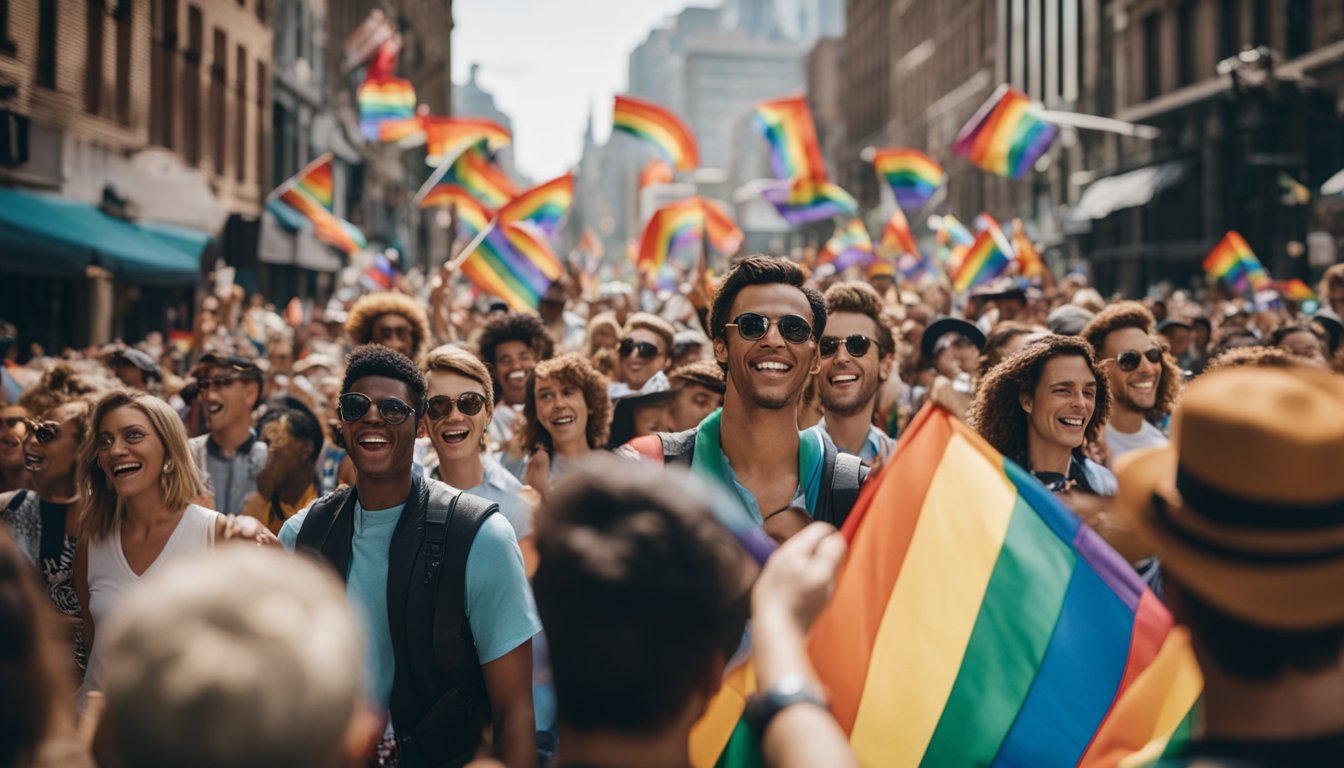5 Documentaries That Highlight LGBTQ+ Travel Stories
Exploring Diverse Journeys
LGBTQ+ travel documentaries offer viewers a unique perspective on the diverse experiences of the LGBTQ+ community across the globe. By capturing personal journeys and cultural exchanges, these films foster greater empathy and understanding.
Why does watching LGBTQ+ travel documentaries matter? These stories illuminate both the beauty and the challenges faced by LGBTQ+ individuals in different parts of the world, providing valuable insights that go beyond typical travel narratives.
1) The Pearl of Africa (2016)
"The Pearl of Africa" tells the compelling story of Cleopatra Kambugu, a Ugandan transgender woman. Born male, Cleopatra embarks on a brave journey to transition to the woman she knows herself to be. Her story unfolds against the harsh backdrop of Uganda, one of the most transphobic regions in the world.
Cleopatra faces numerous challenges, including societal rejection and legal discrimination. These hardships force her to make the tough decision to leave her homeland and her boyfriend behind. Despite these obstacles, her determination to live authentically shines through.
The documentary highlights the dichotomy of Uganda—a country rich in cultural, ethnic, and natural diversity but struggling to accept gender diversity. It also sheds light on Cleopatra’s intimate fight for love and identity.
This film offers a unique and personal look at the intersection of LGBTQ+ issues and travel, as Cleopatra’s journey takes her from Uganda to Kenya and ultimately to Thailand for her surgery. It’s a powerful narrative that underscores the resilience and courage of those fighting for their true selves in hostile environments.
For more information on "The Pearl of Africa," visit its IMDb page.
2) Out in the Line-up (2014)
"Out in the Line-up" is a compelling documentary that explores the taboo subject of homosexuality in surf culture. It follows the journey of two surfers who uncover a hidden community of LGBTQ+ surfers around the world.
The film is co-directed by Ian W. Thomson and features a mix of interviews and personal stories. It captures the challenges faced by LGBTQ+ individuals in a traditionally macho and conservative sport.
The documentary emphasizes the importance of visibility and acceptance. It examines how LGBTQ+ surfers navigate personal and social obstacles in order to stay true to their identity.
Shot across multiple breathtaking locations, the film offers stunning visuals of popular surf spots. It also brings forward a more inclusive and diverse narrative in the world of surfing.
"Out in the Line-up" makes a significant contribution to breaking stereotypes. It highlights the need for broader conversations about inclusivity in sports.
Learn more about "Out in the Line-up" on IMDb.
3) Parvez Sharma: A Sinner in Mecca (2015)
"A Sinner in Mecca" is a documentary directed by Parvez Sharma, an openly gay Muslim filmmaker. The film documents Sharma's Hajj pilgrimage to Mecca, a journey undertaken by millions of Muslims worldwide. Despite the inherent dangers, Sharma bravely records his experiences using only his iPhone.
Filming in Saudi Arabia, where both recording the pilgrimage and homosexuality are punishable by severe penalties, added significant risk to Sharma's endeavor. Sharma navigates these challenges to give viewers a unique perspective on what it means to be a gay Muslim on this sacred journey.
The film premiered at the 2015 Hot Docs Canadian International Documentary Festival, receiving critical acclaim and sparking controversy. It offers a rare and intimate look into a personal journey of faith and identity amidst societal and religious constraints.
For more information, visit "A Sinner in Mecca" on IMDb.
4) Karlovy Vary: a Trans Journey
Karlovy Vary: a Trans Journey (2020) is a touching documentary that chronicles the story of a young transgender woman traveling to Karlovy Vary, a historic spa town in the Czech Republic.
The film captures her experiences as she navigates the complexities of identity, acceptance, and self-discovery during her travels.
Through her interactions with both locals and fellow travelers, the audience gains insight into her struggles and triumphs.
This journey is an emotional, eye-opening exploration of what it means to find a place where one can truly feel at home and understood.
For more information about the film, visit Wikipedia.
5) Light in the Water (2018)
"Light in the Water" is a documentary that chronicles the history of the West Hollywood Aquatics Club, a swim team founded by gay men and women in the early 1980s.
Through interviews and archival footage, the film details how the club not only provided a safe haven for LGBTQ+ athletes but also achieved significant success in competitive swimming.
The documentary delves into the team’s participation in the Gay Games and the impact of the AIDS crisis on its members. It highlights the resilience and camaraderie within the LGBTQ+ community during a tumultuous period.
This film offers an inspiring look at how sports can unite people and break down barriers, shedding light on a lesser-known aspect of LGBTQ+ history.
For more information on "Light in the Water," visit its IMDb page.
The Importance of Visibility in LGBTQ+ Travel Stories
Visibility in LGBTQ+ travel stories plays a crucial role in promoting cultural understanding and challenging stereotypes and prejudices. It opens avenues for greater acceptance and fosters a global sense of community.
Promoting Cultural Understanding
LGBTQ+ travel stories expose audiences to different cultures and lifestyles. By featuring diverse experiences and backgrounds, these documentaries enable viewers to see the richness and variety within the LGBTQ+ community worldwide.
For instance, travel documentaries often highlight local LGBTQ+ festivals, traditions, and safe spaces, showing how different cultures embrace or struggle with acceptance. This fosters empathy and a deeper understanding of global issues affecting the LGBTQ+ community. Viewers gain insights into how cultural perspectives shape the experiences of LGBTQ+ individuals in various parts of the world.
This cultural exchange is vital for breaking down barriers. By showcasing these stories, travel documentaries encourage respect and solidarity among different communities. It helps viewers appreciate the shared humanity beyond geographical and cultural boundaries.
Challenging Stereotypes and Prejudices
One of the powerful aspects of LGBTQ+ travel stories is their ability to challenge and dismantle stereotypes. These narratives provide authentic representations that break away from one-dimensional portrayals often seen in mainstream media.
By spotlighting real-life experiences, these documentaries highlight the resilience and diversity within the LGBTQ+ community. They show individuals living full lives, engaging in activism, and contributing to their societies in meaningful ways. This counteracts negative stereotypes and emphasizes the normality and diversity of LGBTQ+ experiences.
Additionally, these stories offer powerful examples of overcoming adversity. They reveal the strength of LGBTQ+ individuals in the face of discrimination and prejudice. By providing these examples, travel documentaries can inspire change in attitudes and perceptions, encouraging a more inclusive and accepting society.
Representation Across Different Regions
LGBTQ+ travel documentaries offer unique insights into the diverse experiences of individuals across the globe. They capture the cultural nuances, challenges, and triumphs faced by LGBTQ+ communities in different parts of the world.
North America
In North America, LGBTQ+ travel documentaries often spotlight vibrant urban centers like San Francisco and New York City, known for their inclusive atmospheres and rich LGBTQ+ histories. Films like "Before Stonewall" provide an in-depth look at the pre-Stonewall era, highlighting pivotal moments in the struggle for LGBTQ+ rights. These documentaries also delve into the intersections of race, gender, and sexuality, showcasing the variety of voices within the community. Stories from rural areas contrast with these urban narratives, illustrating the spectrum of LGBTQ+ experiences across the continent.
Europe
Europe's LGBTQ+ travel documentaries frequently explore well-known gay-friendly destinations such as Berlin, Amsterdam, and Madrid. These films celebrate the continent's progressive stances on LGBTQ+ rights and its vibrant Pride festivals. Documentaries also shed light on smaller, lesser-known communities, portraying the ongoing fight for recognition and equality in countries with less progressive attitudes. For instance, they highlight the experiences of LGBTQ+ individuals in Eastern Europe, where societal acceptance can vary greatly from one country to another. Through personal narratives, these documentaries paint a picture of both the celebrations and struggles faced by the LGBTQ+ community in Europe.
Asia
Asian LGBTQ+ travel documentaries reveal a complex landscape where acceptance and discrimination coexist in intricate ways. In countries like Thailand and Taiwan, the vibrant LGBTQ+ cultures are prominently featured, showcasing the progress in social acceptance and legal rights. Conversely, documentaries also focus on regions where being openly LGBTQ+ remains dangerous, such as in certain parts of the Middle East or South Asia. These films often highlight the bravery and resilience of individuals fighting for their rights. The diversity of the Asian continent is reflected in its LGBTQ+ stories, from the bustling streets of Tokyo’s LGBTQ+ districts to the hidden lives of community members in more conservative areas.
The Impact of LGBTQ+ Travel Narratives on Local Communities
The presence of LGBTQ+ travel narratives has far-reaching impacts on local communities, influencing both their economies and their social fabric.
Economic Benefits
LGBTQ+ travelers contribute significantly to local economies. Their spending power, estimated to be in the trillions globally, boosts tourism sectors. For instance, LGBT Capital estimates a global spending power of $3.9 trillion.
Local businesses, including hotels, restaurants, and entertainment venues, see substantial benefits. LGBTQ+ tourists often seek inclusive, welcoming establishments, driving demand for businesses to adopt inclusive practices. This encourages local economies to be more open and accommodating, creating a positive feedback loop.
Additionally, hosting LGBTQ+ friendly events, like Pride parades and festivals, attracts domestic and international visitors. These events infuse capital into the local economy, promoting job creation and enhancing the reputation of the destination as an inclusive space.
Social Acceptance and Inclusion
LGBTQ+ travel narratives also play a pivotal role in fostering social acceptance. When LGBTQ+ travelers engage with a destination, they bring visibility to LGBTQ+ identities and issues. This visibility can challenge local prejudices and stereotypes, fostering a more inclusive mindset within the community.
Cultural exchanges facilitated through travel help local communities understand LGBTQ+ experiences better. This understanding can lead to greater social acceptance and legal protections for local LGBTQ+ residents.
Furthermore, businesses and governments often adopt more inclusive policies to attract LGBTQ+ travelers. This results in safer and more welcoming environments not only for tourists but also for local LGBTQ+ individuals, encouraging a culture of acceptance and inclusion.







